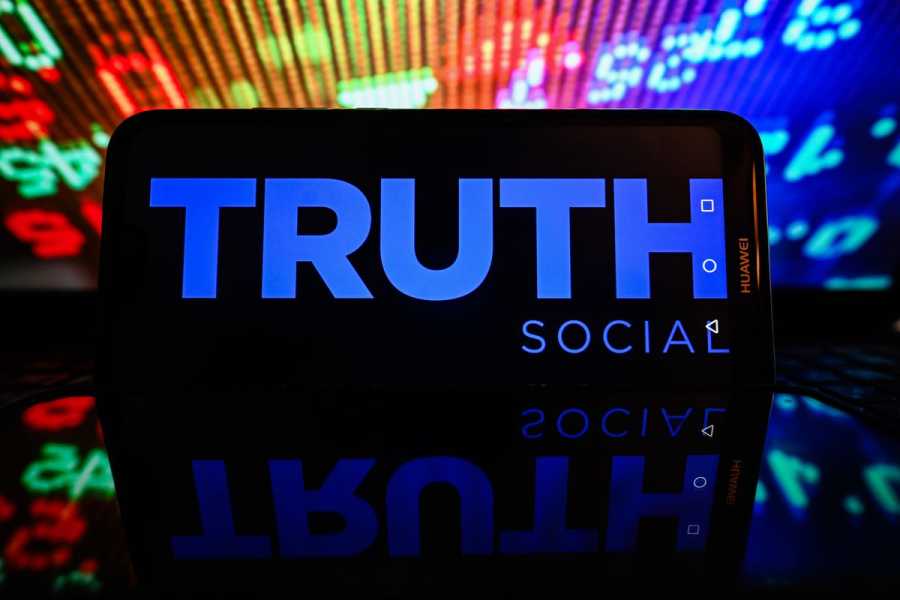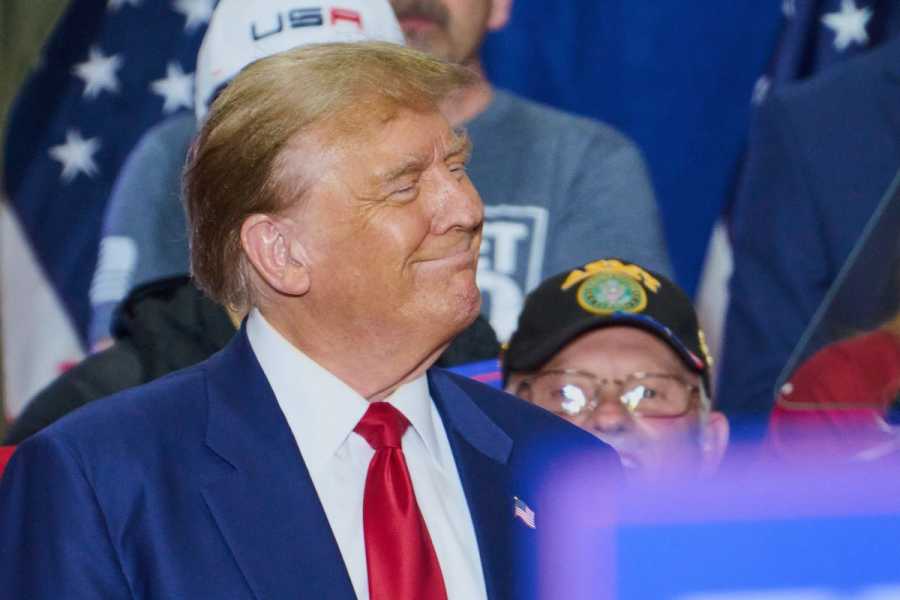With Truth Social going public, big investors could easily buy influence in a second Trump term.

Truth Social’s big shareholders pose potential conflicts of interest for Trump. Omar Marques/SOPA Images/LightRocket via Getty Images Abdallah Fayyad is a correspondent at Vox, where he covers the impacts of social and economic policies. He previously served on the Boston Globe editorial board.
Truth Social, Donald Trump’s social media platform, has not exactly been a resounding business success story, but it recently made the former president a whole lot richer.
That’s because Trump Media, the network’s parent company, went public last week and catapulted Trump’s net worth to an estimated $7.5 billion.
Now you might be wondering how Trump’s social media company is worth that much money. And the short answer is: It isn’t.
On Monday, after the company reported more than $58 million in losses against a mere $4 million in revenue last year, the stock went tumbling down, plummeting by some 21 percent in a single day.
But even so, when stocks closed on Wednesday, the company was valued at around $6.6 billion, putting it in a similar league as social media giants like Reddit. (When Trump Media first went public, its market capitalization peaked at roughly $10 billion.)
The long answer, however, is that while Trump Media’s valuation is entirely illogical from a financial perspective — as one finance professor told CNN, “The stock is pretty much divorced from fundamentals” — its early success in trading can be boiled down to one simple fact: Donald Trump is running for president, and there’s a decent chance that he’ll be back in the White House this time next year.
Truth Social, in other words, is a way for Trump’s supporters to personally offer him financial support at a time when he desperately needs it. That might be why the company’s volatility looks similar to meme stocks for now. As one analyst told my colleague Nicole Narea, people might buy up Trump Media stock so “they can express their beliefs and commitment.”
For those with deep pockets, it’s also an opportunity to curry favor with the former president.
Why does any of this matter?
Before becoming one of the world’s richest 500 people on Bloomberg’s billionaires index for the first time last week, Trump was in financial trouble.
He was cash-strapped and on the hook for nearly half a billion dollars because of two civil suit verdicts, and the attorney general of New York was preparing to seize some of his assets. He has since averted that outcome — at least for now — after the court reduced his required bond and he secured an 11th-hour bond agreement.
vox-mark
Sign up for the newsletter Today, Explained
Thanks for signing up!
Check your inbox for a welcome email.
Email (required)
Oops. Something went wrong. Please enter a valid email and try again.
By submitting your email, you agree to our Terms and Privacy Notice. You can opt out at any time. This site is protected by reCAPTCHA and the Google Privacy Policy and Terms of Service apply. For more newsletters, check out our newsletters page. Subscribe
As I’ve written before, Trump’s financial problems are not just worrisome for him but for the whole country. His enormous debts would be a serious liability for any candidate for public office, let alone the presidency.
It’s hard to know how worried to be, however: Trump’s finances are quite opaque.
But read another way, that means that not only do his businesses — which he refused to divest from when he was president and which continued to work with other countries during his time in the White House — present potential conflicts of interest, but the public also has few ways of knowing the extent of those conflicts, or what they might even be.
On the plus side, that Trump Media is publicly traded makes Trump’s finances slightly more transparent because we can keep track of who the major shareholders might be. But that alone isn’t enough because when Trump Media went public, it became an avenue for exactly the kind of corruption I was writing about.
“It puts him in a position where he could be subjected to outside influence by foreign entities and other special interests at the cost, perhaps, of US national security or other interests,” Virginia Canter, the chief ethics counsel at the Citizens for Responsibility and Ethics in Washington, told Vox.

Daniel Steinle/Bloomberg via Getty Images
But if buying stocks is legal, how could it lead to corruption?
Imagine, for example, you were a wealthy lobbyist looking to influence a second Trump administration.
You’ve already maxed out on contributions to his campaign, but want to stand out even more and show Trump that you have his back. You could become a member at Mar-a-Lago, or hunt for alternative PACs to channel money into (like one linked to the Republican National Committee that is designed to have donors pay Trump’s legal bills).
Or, you could turn to his public company and buy up a bunch of stock to help it stay afloat. Should he become president again, you could have leverage over him because if you decide to dump your shares, you could put a dent in Trump’s overall net worth.
Now here’s a more tangible example: As Citizens for Responsibility and Ethics in Washington pointed out on X, the biggest institutional investor in the shell company that merged with Truth Social was GOP megadonor Jeffrey Yass, who also happens to be a major investor in TikTok’s parent company.
While there’s no proof that Yass played a direct role in Trump changing his stance on whether or not TikTok should be banned, Trump did only change his tune after building up his business relationship with Yass. It’s unclear how much stock Yass still owns in Trump Media after the merger, but that’s just one example of how messy these potential conflicts of interest can be.
That’s not to mention the possibility of foreign businesses, governments, or oligarchs flocking to buy up shares in Trump’s company, putting him in direct violation of the Constitution’s emoluments clause should he win in November. That’s an accusation that plagued his presidency, when foreign governments spent millions of dollars renting out rooms at his hotels or leasing office space in his buildings.
“It’s not good for the country if we were to elect a president who, again, is really in business to enrich himself and [Trump Media] provides a direct vehicle for those seeking his favor to do so,” Canter said.
And that, in the end, is why Trump’s potential return to the White House is so dangerous: In addition to having plenty of bad and reckless ideas, his presidency could be up for sale.
This story appeared originally in Today, Explained, Vox’s flagship daily newsletter. Sign up here for future editions.
Sourse: vox.com